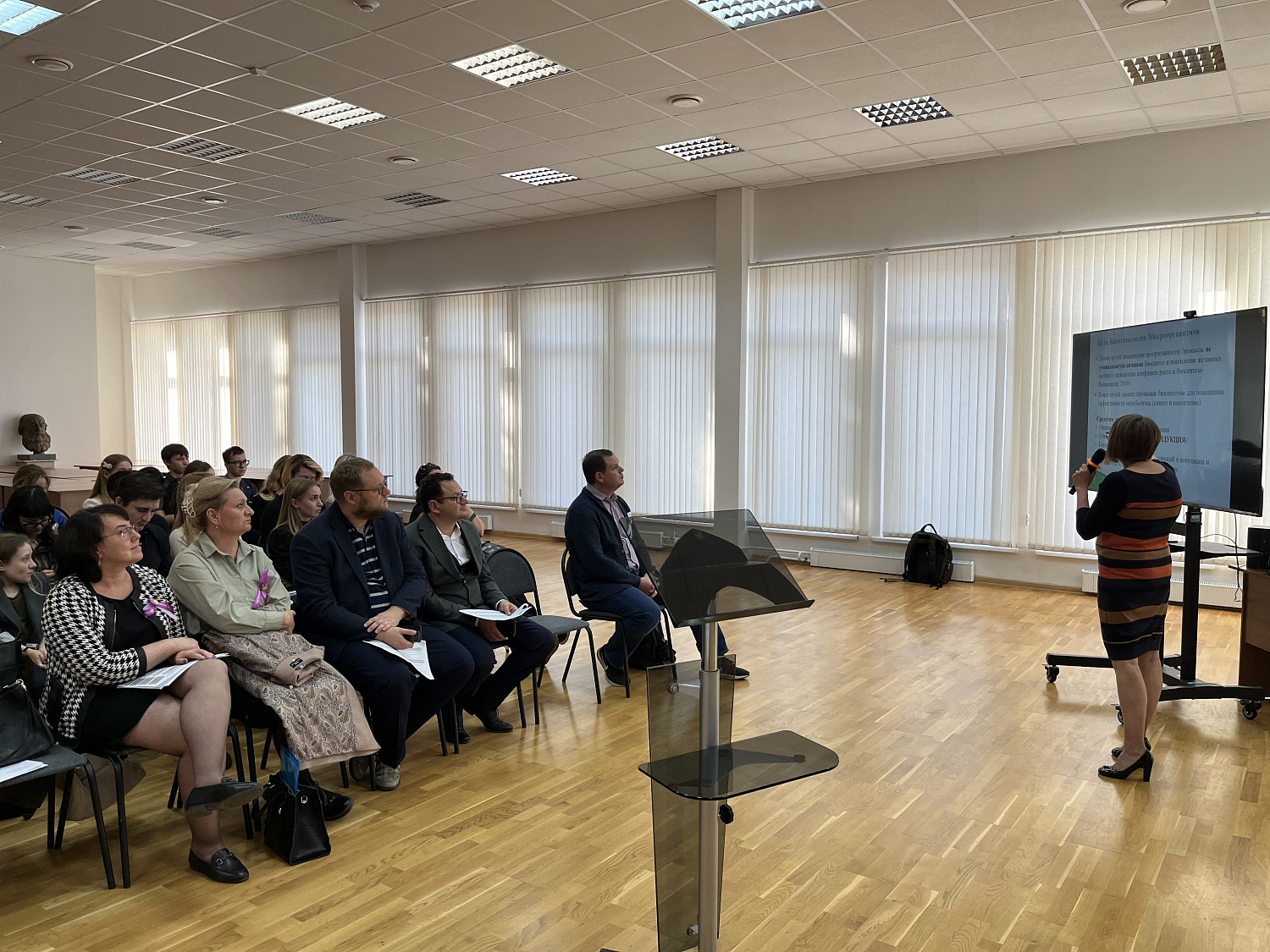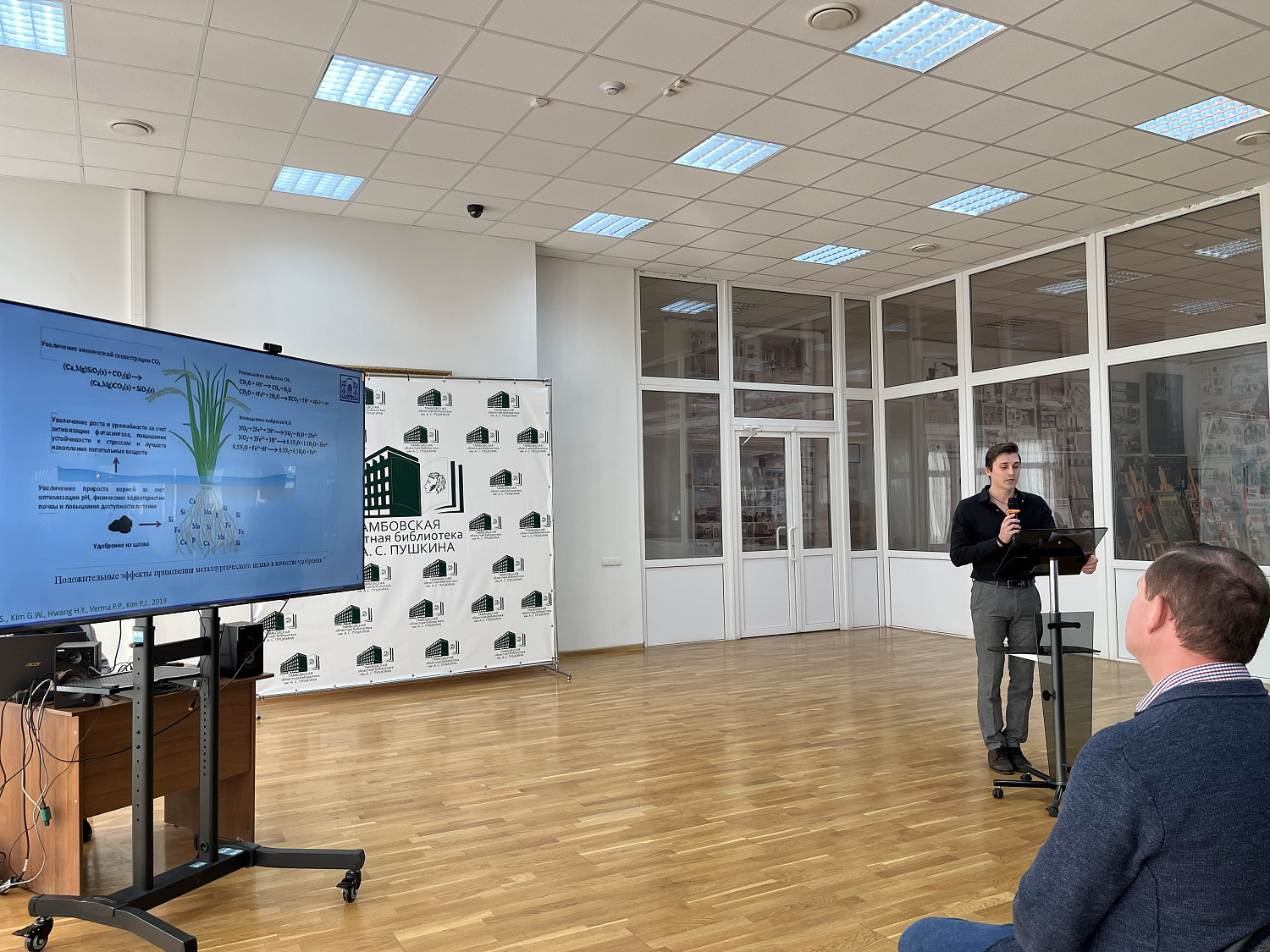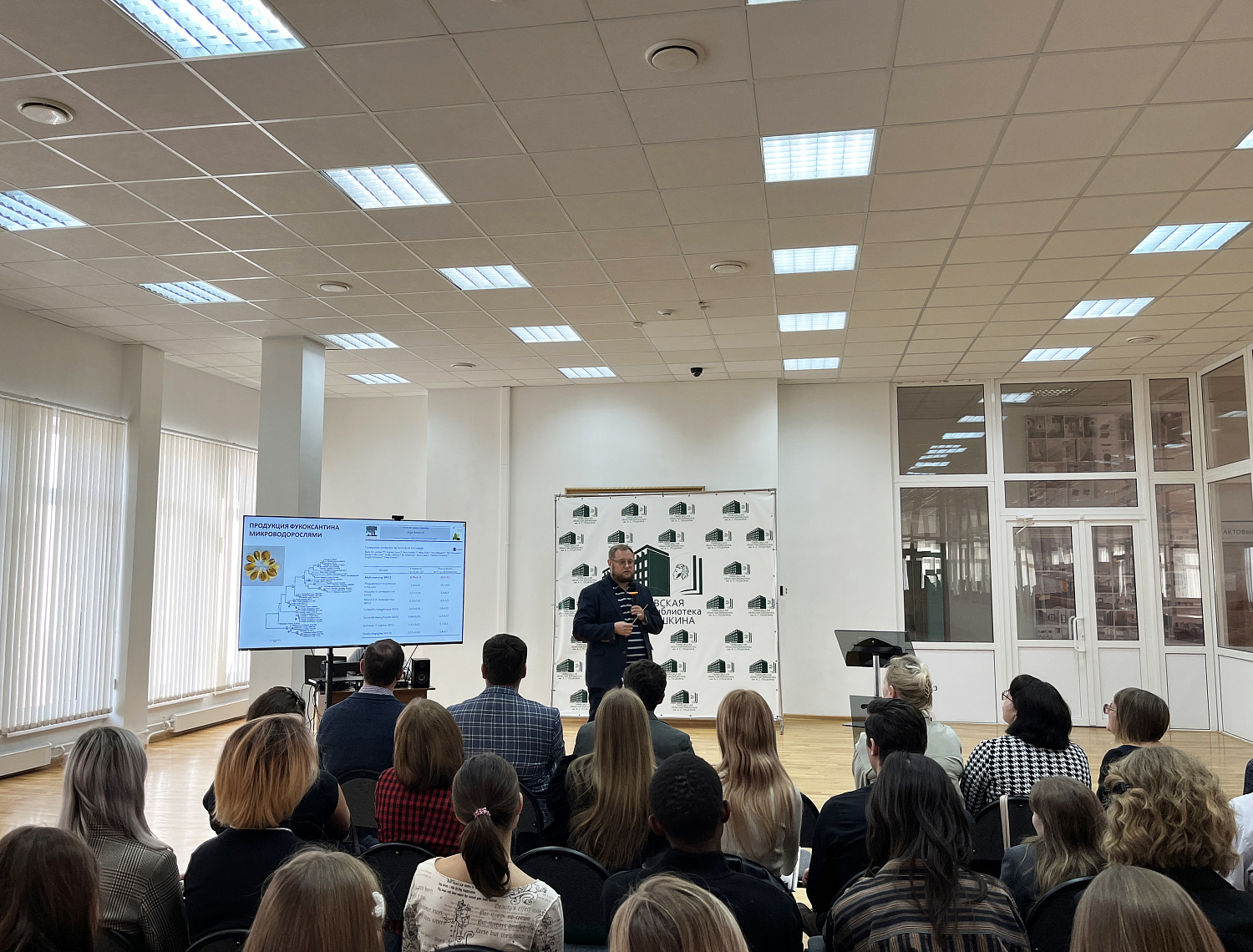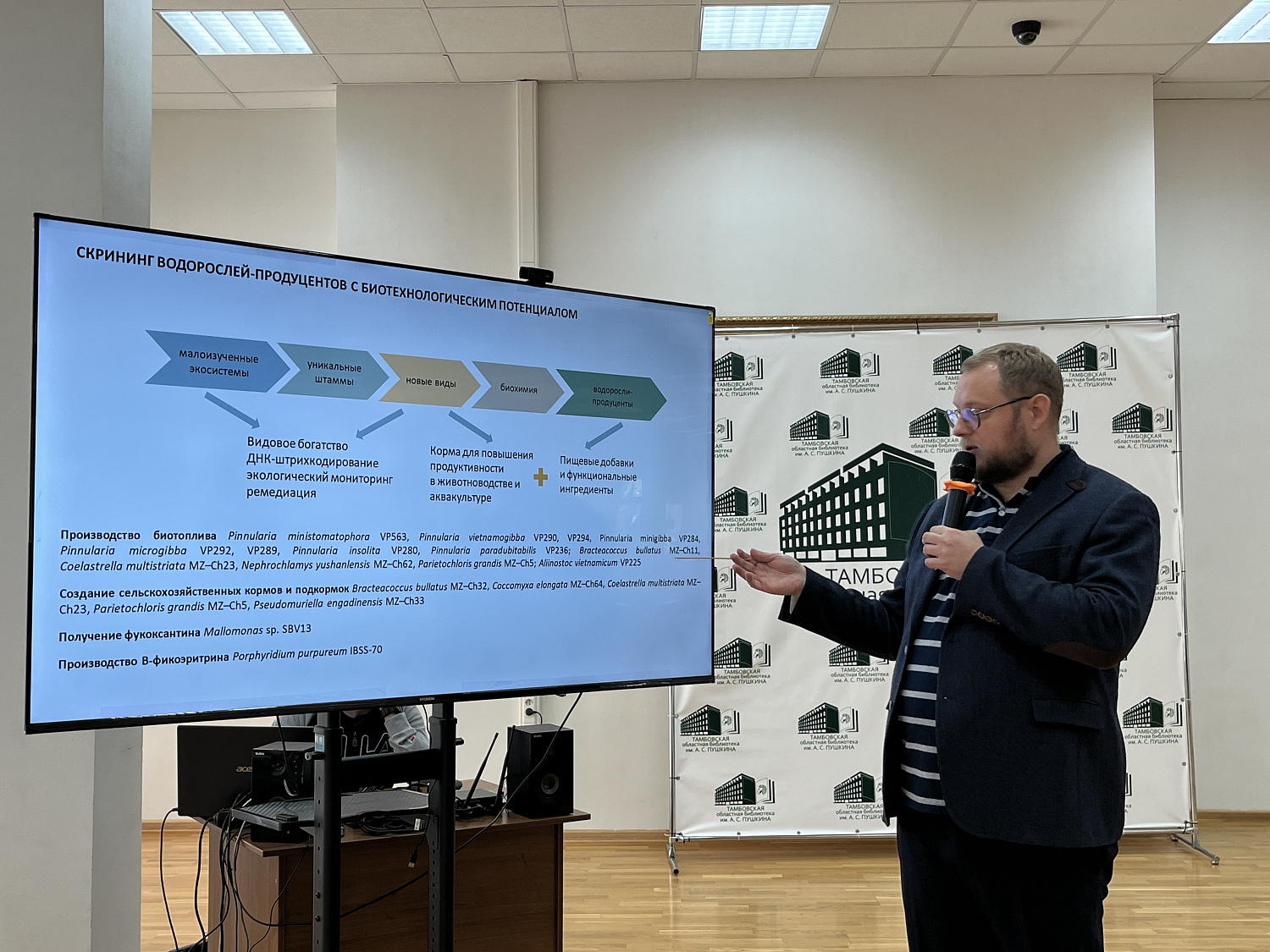Derzhavin University, as part of the NAUKA 0+ Science Festival in the Tambov Region, brought together scientists studying the biotechnological potential of photosynthetic organisms. At the round table, the results of current research were shared by Maksim Kulikovsky, Doctor of Biological Sciences, Head of the Department of Molecular Taxonomy and Bioengineering of Autotrophic Organisms at Timiryazev Institute of Plant Physiology of the Russian Academy of Sciences, Elena Tarakhovskaya, Candidate of Biological Sciences, Associate Professor of the Department of Plant Physiology and Biochemistry at St. Petersburg State University, Tatyana Kozlova, Senior Researcher of the Scientific and Educational Center for Ecology and Biotechnology at Derzhavin University, Candidate of Biological Sciences, Associate Professor, Elena Malysheva, Candidate of Biological Sciences, Associate Professor, Head of the Department of Biology and Biotechnology at Derzhavin University.
The interest of Derzhavin University researchers in this field of science is connected with algal biotechnology – a new area of research at the University. Scientists are developing methodological approaches and technical solutions for obtaining highly nutritious algal biomass and creating on its basis biofertilizers, livestock feed, chemical preparations, etc.
– With a relatively simple cultivation process, microalgae are applicable both in the agro-industrial complex and for solving problems related to human health, – says Alexander Gusev, Vice-Rector for Research at Derzhavin TSU. – Strengthening this scientific direction is the University’s contribution to promoting the Food Security Doctrine, improving the quality of agricultural products and reducing the environmental impact of the agro-industrial complex. Biotechnology of plants and microorganisms for the agro-industrial complex and nature management is one of the University’s strategic projects within the framework of the Priority-2030 program. We are currently expanding our contacts with researchers in the field of algae biotechnology in order to choose our own development vector.
The round table was organized as a platform for an open dialogue between experienced researchers and young members of the scientific community. Svetlana Chebotareva, Junior Researcher at the Algae Biotechnology Laboratory of the Ecology and Biotechnology Research Center of Derzhavin University, presented the potential of using microalgae to purify wastewater from hazardous pollutants. Alexandra Golubeva, Junior Researcher at the Laboratory of Molecular Taxonomy of Aquatic Plants of the Institute of Plant Physiology of the Russian Academy of Sciences, spoke about diatoms as producers of three-dimensional nanostructured biosilica for wastewater treatment and nanoparticle synthesis, and Petr Baranchikov, Junior Researcher at the Algae Biotechnology Laboratory of the Ecology and Biotechnology Research Center of Derzhavin University, described the impact of metallurgical waste on agricultural plants.



